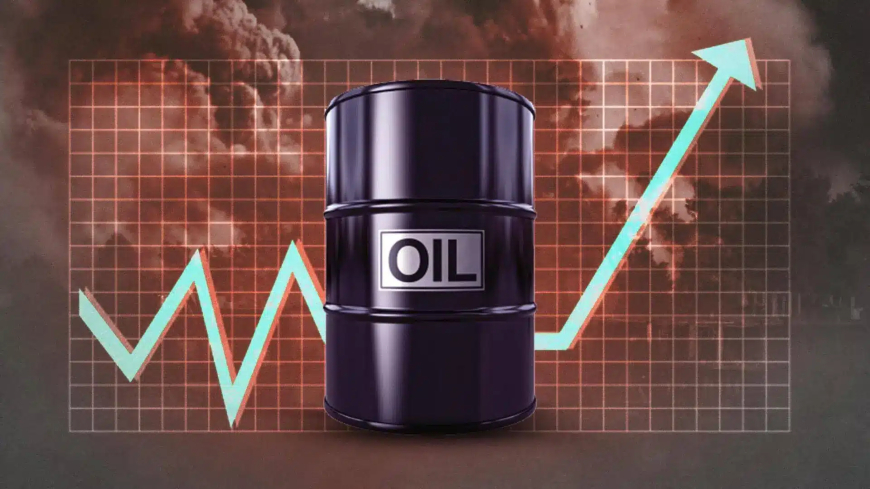New Delhi, June 16: Global crude oil prices witnessed a sharp uptick on Monday as geopolitical tensions in the Middle East flared up, particularly between Israel and Iran. Brent crude jumped as much as 5.5% in early trade before paring gains to settle around $75 a barrel, following reports of a direct Israeli attack on Iran’s massive South Pars gas field — an incident that reportedly halted operations at a major production platform.
Analysts see this price surge as a typical reaction to geopolitical instability in the oil-rich region. Norbert Rucker, Head of Economics and Next Generation Research at Julius Baer, commented, “Oil is the fever measure of such conflicts, and prices spiked accordingly. The situation remains in flux, and the coming days and weeks will show how far the escalation goes.”
Rucker added that historical patterns suggest such price spikes tend to be short-lived unless the conflict expands significantly. “Our best guess is that this latest conflict eruption follows the usual pattern, with prices rising temporarily before returning to previous levels,” he noted.
According to analysts, crude prices are unlikely to see another sharp upward leg unless critical infrastructure like the Strait of Hormuz—through which over 20 million barrels per day (mbpd) of global oil trade flows—is directly threatened or blocked. Additionally, concerns are mounting over possible disruptions by Iran-backed Houthi rebels in Yemen targeting commercial shipping in the region.
The current Israeli action comes amidst a breakdown in nuclear negotiations between Tehran and Washington, with Iran warning it would retaliate against U.S. military bases in Iraq and neighboring regions if provoked. In response, the U.S. has reportedly advised some of its personnel in the area to evacuate.
A report by Emkay Global highlights that Iran produces around 3.3 mbpd of crude oil—approximately 3% of global output—and exports 1.5 mbpd, with China accounting for 80% of its exports, followed by Turkey. Given Iran’s strategic location on the northern edge of the Strait of Hormuz, any conflict involving Tehran could significantly disrupt the global oil supply chain.
“A wider Middle East conflict involving major oil-producing nations like Saudi Arabia, Iraq, Kuwait, and the UAE could potentially cause a substantial and sustained spike in global oil prices,” the Emkay report warned.
For now, market watchers maintain that while the current rise in prices is notable, the global oil market remains relatively resilient, with no immediate threat to supply. However, continued escalation or regional spillovers could change that quickly.




 Previous
Article
Previous
Article











